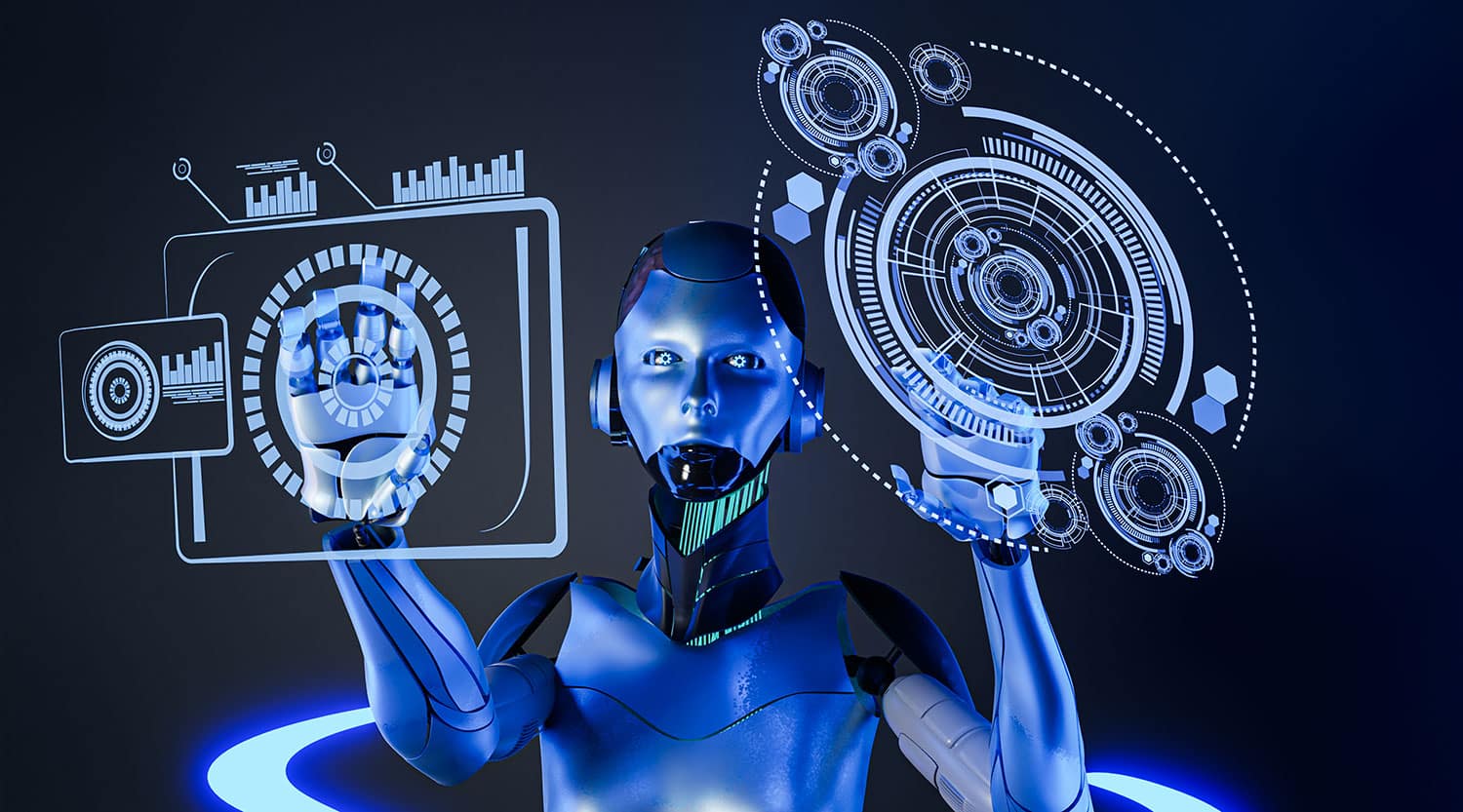eCommerce businesses are continuously looking for ways to stand out, attract customers, and offer a seamless shopping experience.
As competition grows, companies are turning to AI (Artificial Intelligence) and personalization to enhance their eCommerce website design.
AI and personalization allow online stores to create tailored shopping experiences for each customer, which leads to improved engagement, increased sales, and stronger customer loyalty.
In this article, we’ll dive deep into the role AI and personalization play in eCommerce website design. We’ll discuss how AI-driven product recommendations and personalized experiences can boost user engagement and make your eCommerce platform more competitive.
If you’re looking for ways to optimize your site or are considering hiring a website designing company in Delhi, this article will provide insights to help you make informed decisions.
What is AI in eCommerce Website Design?
Artificial intelligence (AI) refers to the development of computer systems that can perform tasks that would typically require human intelligence, such as learning, reasoning, problem-solving, and decision-making.
In the context of eCommerce, AI is used to analyze customer behavior, predict trends, and make smart recommendations that help businesses cater to their customers’ unique needs.
AI can analyze vast amounts of data quickly and efficiently, helping eCommerce businesses identify patterns, understand customer preferences, and make intelligent decisions in real-time.
It’s a powerful tool that has transformed eCommerce website design, allowing companies to create personalized shopping experiences for each user.
The Importance of Personalization in eCommerce
Personalization in eCommerce refers to tailoring the online shopping experience to meet individual customers’ preferences, behaviors, and needs.
Instead of offering a generic shopping experience, personalization ensures that customers receive content, products, and recommendations that are relevant to them.
This creates a more engaging and enjoyable user experience, increasing the likelihood that customers will make a purchase.
With the rise of online shopping, customers have come to expect personalized experiences. They want websites that can predict their needs, offer relevant products, and provide a seamless shopping journey from start to finish.
This is where AI comes into play, making it easier for eCommerce businesses to deliver personalized content in real-time.
How AI and Personalization Enhance User Engagement
The integration of AI into eCommerce website design has revolutionized the way businesses engage with their customers. Here are several ways that AI-driven personalization can enhance user engagement:
1. AI-Powered Product Recommendations
One of the most common applications of AI in eCommerce is AI-powered product recommendations.
When a customer visits an eCommerce website, AI algorithms analyze their browsing behavior, past purchases, and preferences to offer personalized product suggestions.
This ensures that customers see products that are relevant to them, making it easier for them to find what they’re looking for and increasing the chances of a purchase.
For example, if a customer frequently purchases athletic wear, AI can recommend new workout clothing or gear based on their previous purchases.
These recommendations not only enhance user engagement but also boost sales, as customers are more likely to buy products that are specifically tailored to their interests.
2. Personalized Homepages and Landing Pages
AI allows eCommerce websites to create personalized homepages and landing pages for each customer.
Based on the user’s behavior, location, and preferences, the website’s content, products, and offers can be customized to suit the individual.
For instance, if a user frequently shops for electronics, the homepage might highlight the latest gadgets and tech deals, while someone interested in fashion might see the latest clothing collections.
This level of personalization makes the shopping experience more enjoyable and relevant, keeping customers engaged with the website for longer periods.
3. Dynamic Pricing
Another area where AI has a significant impact is dynamic pricing. AI algorithms can analyze market trends, customer behavior, and competitor pricing to offer personalized prices for products.
This means that eCommerce websites can adjust their prices in real-time based on factors like customer demand, inventory levels, and even the time of day.
For example, an AI-driven system might offer a customer a discount on a product they’ve viewed multiple times but haven’t yet purchased.
This creates a sense of urgency and incentivizes the customer to make the purchase, thereby increasing engagement and sales.
4. Chatbots and Virtual Assistants
AI-powered chatbots and virtual assistants have become an integral part of eCommerce website design. These tools provide customers with instant support, answering questions, offering product recommendations, and guiding them through the shopping process.
For example, if a customer is unsure about which product to purchase, a chatbot can ask questions and provide personalized suggestions based on the customer’s preferences.
This real-time assistance improves the overall shopping experience, reduces the bounce rate, and keeps customers engaged with the website.
5. Personalized Email Campaigns
AI can also be used to create personalized email campaigns that keep customers engaged even after they’ve left the website.
By analyzing customer behavior, AI can send targeted emails with product recommendations, discounts, and special offers that are relevant to each individual.
For example, if a customer adds items to their cart but doesn’t complete the purchase, AI can trigger an email reminding them of the items they left behind and offering a discount to encourage them to complete the purchase.
These personalized emails help re-engage customers and drive them back to the website.
AI and Personalization in Product Search
Product search is a critical feature of any eCommerce website, as it helps customers find the products they’re looking for quickly and easily.
AI has transformed the product search experience by making it more intuitive, personalized, and efficient.
1. AI-Powered Search Engines
Traditional product search engines rely on keywords to deliver search results.
However, AI-powered search engines use natural language processing (NLP) to understand the context and intent behind a customer’s search query.
This means that customers can search for products using conversational language, and the AI will deliver relevant results based on their intent.
For example, if a customer searches for “comfortable shoes for running,” the AI-powered search engine will not only show running shoes but also prioritize products that emphasize comfort.
This improves the accuracy of search results and enhances the overall user experience.
2. Visual Search
Another innovative feature powered by AI is visual search. Visual search allows customers to upload an image of a product they like, and the AI will analyze the image and deliver similar or matching products available on the eCommerce website.
For example, if a customer uploads a photo of a pair of sneakers, the AI will show similar sneakers available on the website.
This feature makes it easier for customers to find what they’re looking for and keeps them engaged with the website for longer periods.
AI for Customer Insights and Behavior Analysis
One of the most significant advantages of AI in eCommerce website design is its ability to analyze customer behavior and provide valuable insights.
AI tools can track and analyze how customers interact with the website, what products they view, how long they stay on certain pages, and which items they add to their cart.
By analyzing this data, AI can predict future customer behavior and recommend changes to the website design, product offerings, and marketing strategies to improve user engagement.
For example, if AI detects that customers frequently abandon their carts at a specific point in the checkout process, the website can be optimized to address that issue and reduce cart abandonment.
Enhancing Customer Retention with AI and Personalization
AI and personalization don’t just help attract new customers; they also play a crucial role in retaining existing ones. Here’s how AI and personalization can improve customer retention:
1. Personalized Loyalty Programs
Loyalty programs are a popular way to keep customers coming back, but AI can take loyalty programs to the next level by offering personalized rewards.
By analyzing customer behavior, AI can offer rewards that are tailored to each individual’s preferences and purchase history.
For example, if a customer frequently purchases skincare products, the loyalty program might offer a discount on their favorite brand or a free product that complements their previous purchases.
This personalized approach makes customers feel valued and encourages repeat business.
2. Predictive Analytics for Customer Retention
AI-powered predictive analytics can help eCommerce businesses identify customers who are at risk of leaving.
By analyzing data such as purchase frequency, website visits, and customer satisfaction, AI can predict which customers are likely to churn and recommend personalized strategies to re-engage them.
For example, if a customer hasn’t made a purchase in several months, AI can trigger a personalized email campaign with a special offer or discount to encourage them to return to the website.
This proactive approach helps reduce churn and increases customer retention.
The Role of a Website Designing Company in Delhi
For businesses looking to integrate AI and personalization into their eCommerce website design, working with a professional website designing company in Delhi can be a smart choice.
A website design company specializes in creating optimized, user-friendly websites that incorporate the latest technologies, including AI and personalization.
Here’s how a website designing company in Delhi can help:
1. Expertise in AI and Personalization
A professional website designing company in Delhi will have the expertise to implement AI-driven personalization features, such as product recommendations, dynamic pricing, and personalized content.
They can help businesses create a seamless and engaging shopping experience for their customers.
2. Custom Website Design
Each eCommerce business is unique, and a website designing company can create a custom website design that reflects the brand’s identity and caters to its target audience.
By incorporating AI and personalization, the website will be tailored to meet the specific needs of the business and its customers.
3. Ongoing Support and Optimization
The world of eCommerce is constantly evolving, and a website designing company in Delhi can provide ongoing support to ensure that the website stays up-to-date with the latest trends and technologies.
They can also help optimize the website based on customer behavior and analytics to improve engagement and conversion rates.
Conclusion
The role of AI and personalization in eCommerce website design cannot be overstated. By using AI-driven product recommendations, dynamic pricing, personalized homepages, and chatbots, businesses can create a more engaging and enjoyable shopping experience for their customers.
AI also provides valuable insights into customer behavior, allowing businesses to optimize their website and marketing strategies for better results.
Whether you’re a business owner looking to enhance your eCommerce platform or considering hiring a website designing company in Delhi, integrating AI and personalization into your website design is a powerful way to boost user engagement, improve customer retention, and increase sales.
By staying ahead of the curve and leveraging the power of AI and personalization, eCommerce businesses can create personalized shopping experiences that resonate with customers and keep them coming back for more.


